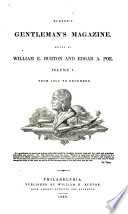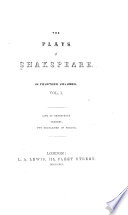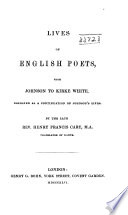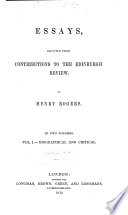 A quibble is the golden apple for which he will always turn aside from his career, or stoop from his elevation. A quibble, poor and barren as it is, gave him such delight, that he was content to purchase it, by the sacrifice of reason, propriety and truth.... A quibble is the golden apple for which he will always turn aside from his career, or stoop from his elevation. A quibble, poor and barren as it is, gave him such delight, that he was content to purchase it, by the sacrifice of reason, propriety and truth....  Blackwood's Edinburgh Magazine - Page 2101856Full view Blackwood's Edinburgh Magazine - Page 2101856Full view - About this book
 | William Shakespeare - 1838 - 1130 pages
...such delight, that he was content to purchase it by the sacrifice of reason, propriety, c tod truth. ll writers, at least ta lose it. It will be thought strange, that, in enumerating tia defects of this writer, I have not... | |
 | William Shakespeare - 1839 - 550 pages
...such delight, that he was content to purchase it by the sacrifice of reason, propriety, and truth. A quibble was to him the fatal Cleopatra for which he lost the world, and was content to lose it.) For his other deviations from the art of writing, I resign him to critical justice, without making... | |
 | 1839 - 372 pages
...that if he did, the strong pleasure of evolving his own personal impressions was " the fatal Capua for which he lost the world, and was content to lose it." Shakspeare manages the matter differently ; he never describes the appearance of his heroines, but... | |
 | 1840 - 582 pages
...peculiarities he has in common with his great predecessor, as for instance his " puns," the Cleopatras for which he lost the world and was content to lose it — our author has one which rivals the ovn; of Homer or the "Roam hither then" of Shakspeare. Lord... | |
 | William Shakespeare - 1841 - 316 pages
...such delight, that he was content to purchase it, by the sacrifice of reason, propriety, and truth. A quibble was to him the fatal Cleopatra for which he lost the world, and was content to lose it. It will be thought strange, that, in enumerating the defect* of this writer, 1 have not yet mentioned... | |
 | Spencer Hall - 1841 - 48 pages
...symbols of intellectual worship. May I be permitted also to add one question as to his quibbles—" the fatal Cleopatra. for which he lost the world, and was content to lose it." Allow the custom of the age ; admit the propensity of the writer. But are they all his own ? Are none... | |
 | William Shakespeare - 1844 - 348 pages
...such delight, that he was content to purchase it, by the sacrifice of reason, propriety, and truth. A quibble was to him the fatal Cleopatra for which he lost the world, and was content to lose it. It will be thought strange, that, in enumerating the defects of this writer, I hare not yet mentioned... | |
 | Henry Francis Cary - 1846 - 564 pages
...defended him from the neglect of what are called the unities. The observation, that a quibble was the Cleopatra for which he lost the world, and was content to lose it, is more pointed than just. Shakspeare cannot be said to have lost the world ; for his fame has not... | |
 | Henry Rogers - 1850 - 542 pages
...what was absurdly said of Shakspeare, might with some propriety be said of him, ' that a pun was the Cleopatra for which he lost the world, and was content to lose it.' In a moral and religious point of view, the character of Fuller is entitled to our veneration, and... | |
 | Henry Rogers - 1853 - 470 pages
...what was absurdly said of Shakspeare, might with some propriety be said of him, " that a pun was the Cleopatra for which he lost the world, and was content to lose it." In a moral and religious point of view, the character of Fuller is entitled to our veneration, and... | |
| |